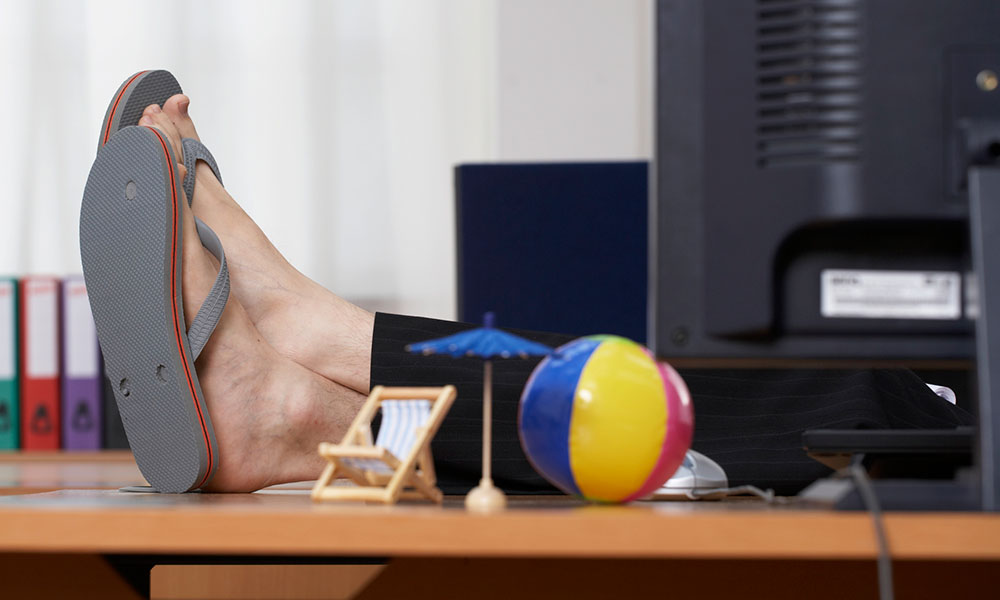
Travel Association: Don’t Be Afraid to Use Your PTO
According to a new study released by the U.S. Travel Association's Travel Effect initiative, use of vacation days has fallen to its lowest level in four decades. And all that time in the office doesn't help boost careers.
The U.S Travel Association has a message for the public: Take a vacation, because you look tired.
In a new study released by its Travel Effect initiative, U.S. Travel reports that Americans left 169 million paid vacation days unused last year, collectively skipping out on $52.4 billion in benefits.
On average, Americans took 16 days of vacation last year, the lowest level in roughly four decades, according to the association. That led U.S. Travel President and CEO Roger Dow to predict dire effects on American traditions.
“If this trend continues, the vacations of our childhoods could be a thing of the past—completely unknown by the next generation. That would be a true loss for our families and our country,” Dow said in a news release.
The survey, conducted by Oxford Economics, also highlights general trends in paid time off (PTO), including:
More PTO, less use: On average, Americans get 21 days of PTO each year, or more than four full weeks. But roughly a quarter of that, 4.9 days, is generally forfeited. In some cases, that time can’t be rolled over or paid back, meaning that 23 percent of workers lose the time entirely.
An economic benefit: Since 2000, the number of vacation days taken has fallen significantly, according to the study, dropping from 20 to 16. Lost as a result of that decline is a huge amount of spending—spending that would come back if we started vacationing at pre-2000 levels. “Annual vacation days taken by U.S. employees would jump 27 percent, equivalent to 768 million additional PTO days and delivering a $284 billion impact across the entire U.S. economy, including $118 billion in direct travel spending alone,” the executive summary states.
More face time doesn’t mean raises: The study notes that there’s limited benefit to spending nearly all your time in the office. Employees who left between 11 and 15 days of PTO on the table were 6.5 percent less likely to get a raise. “The only thing employees gain by being tied to the office is stress,” the executive summary says.
The association drives home the point in this video clip created to go with the study:
https://www.youtube.com/watch?v=v_sP-X-lBFU
“Business casual, T minus two minutes.” (And yes, that’s a cameo by Dow near the end.)
(iStock/Thinkstock)






Comments